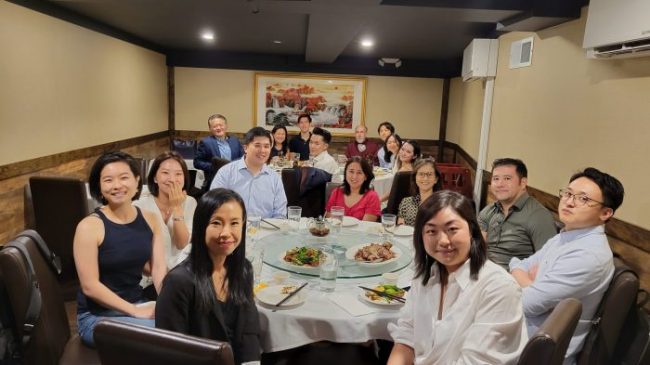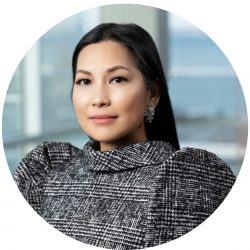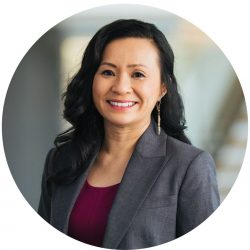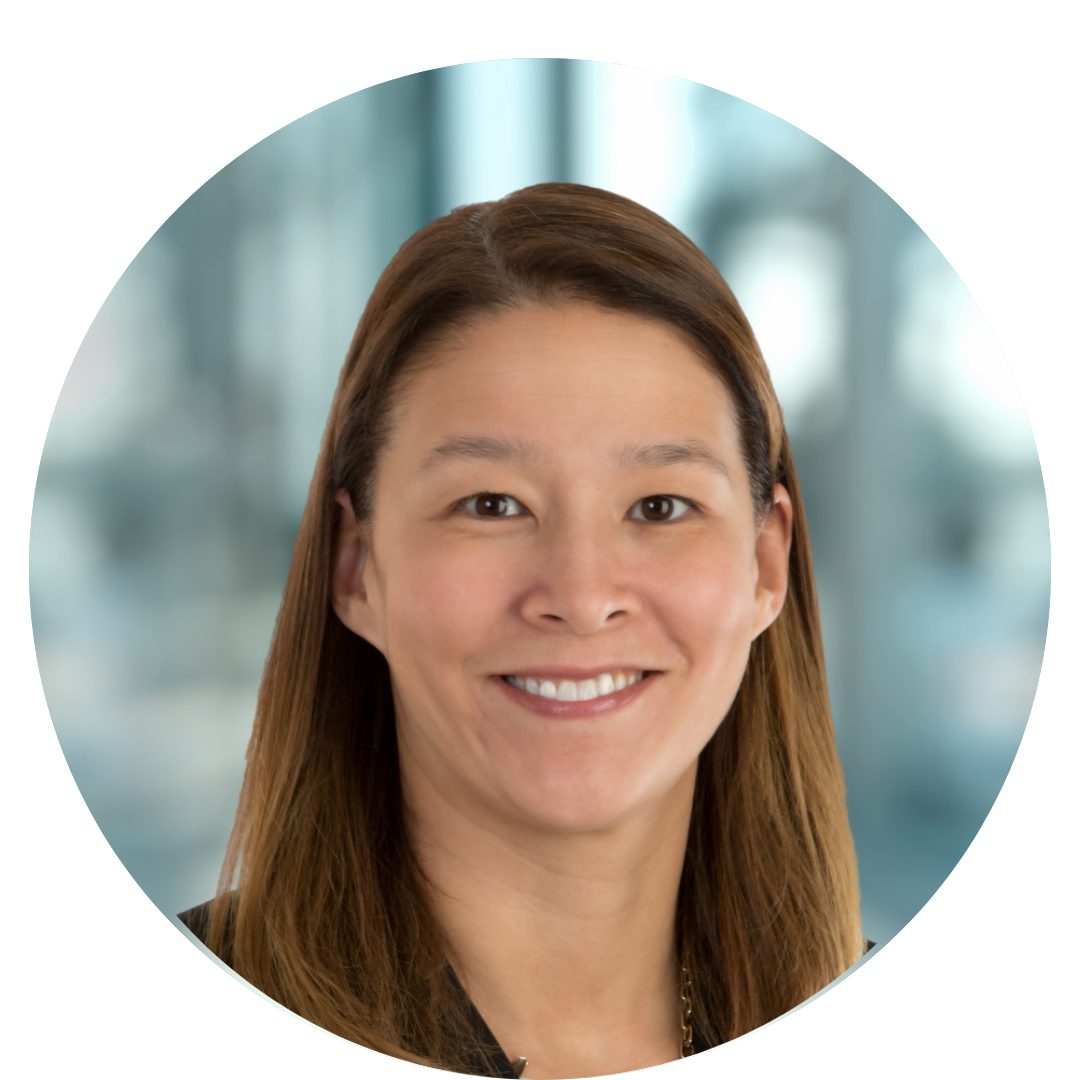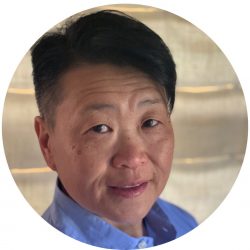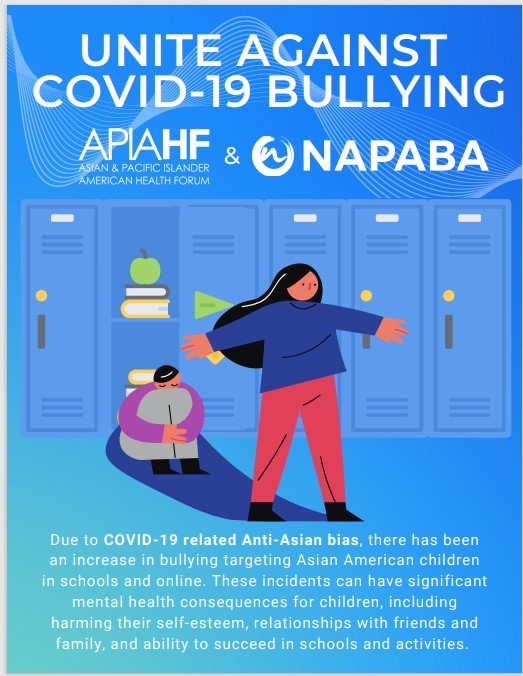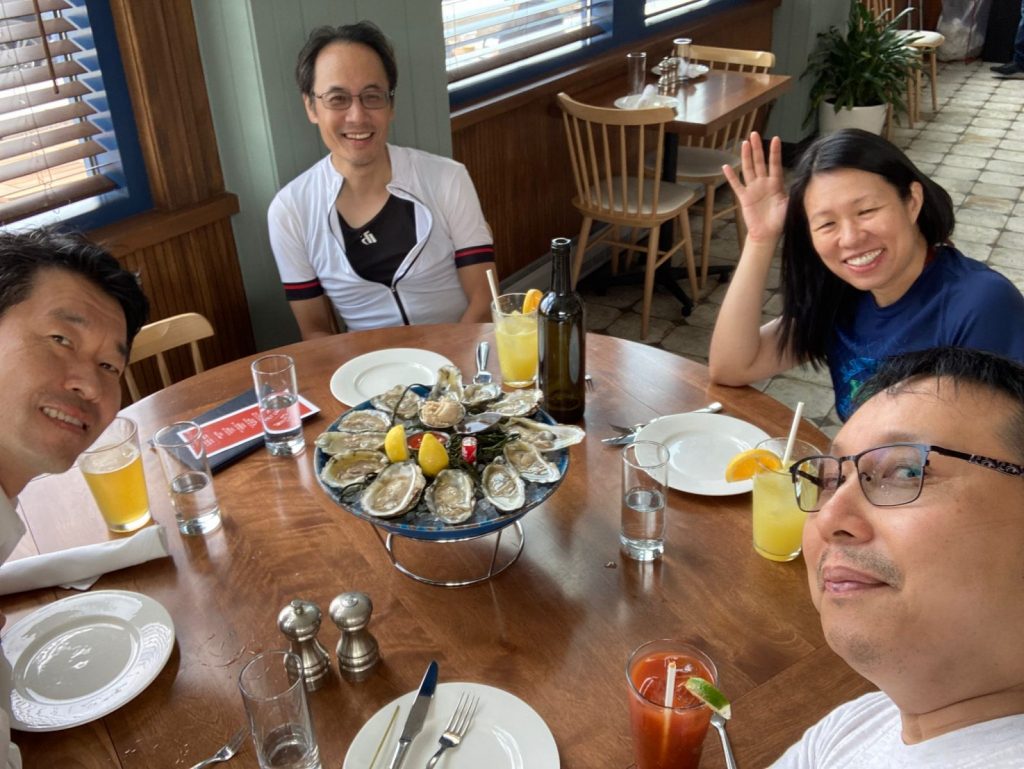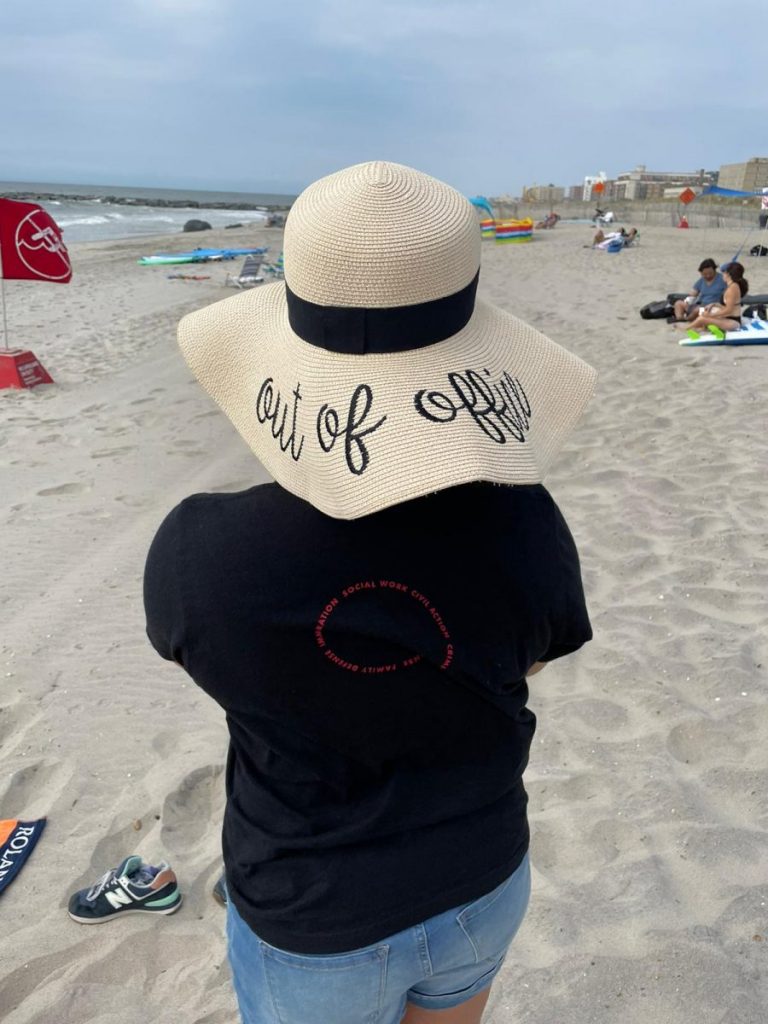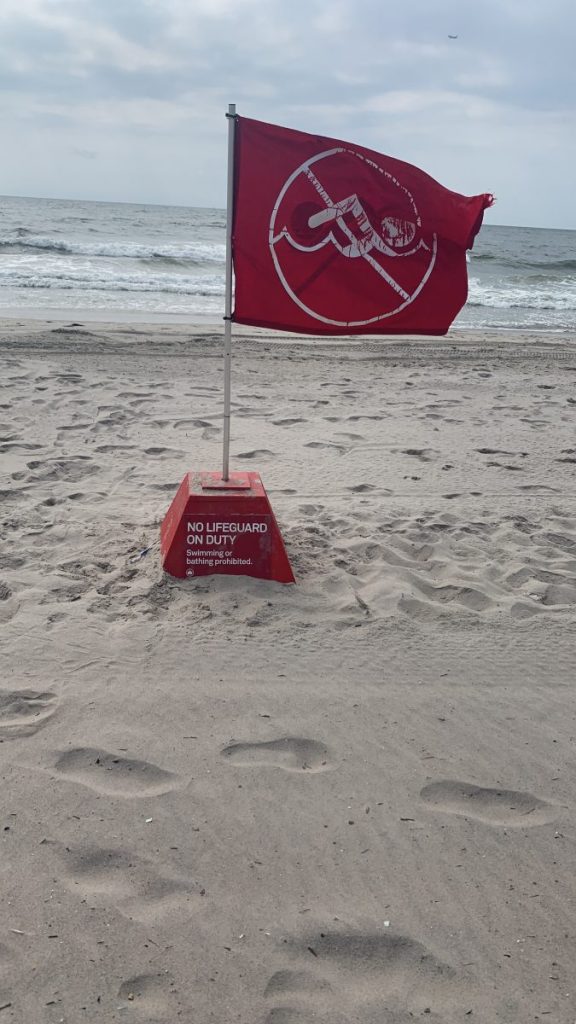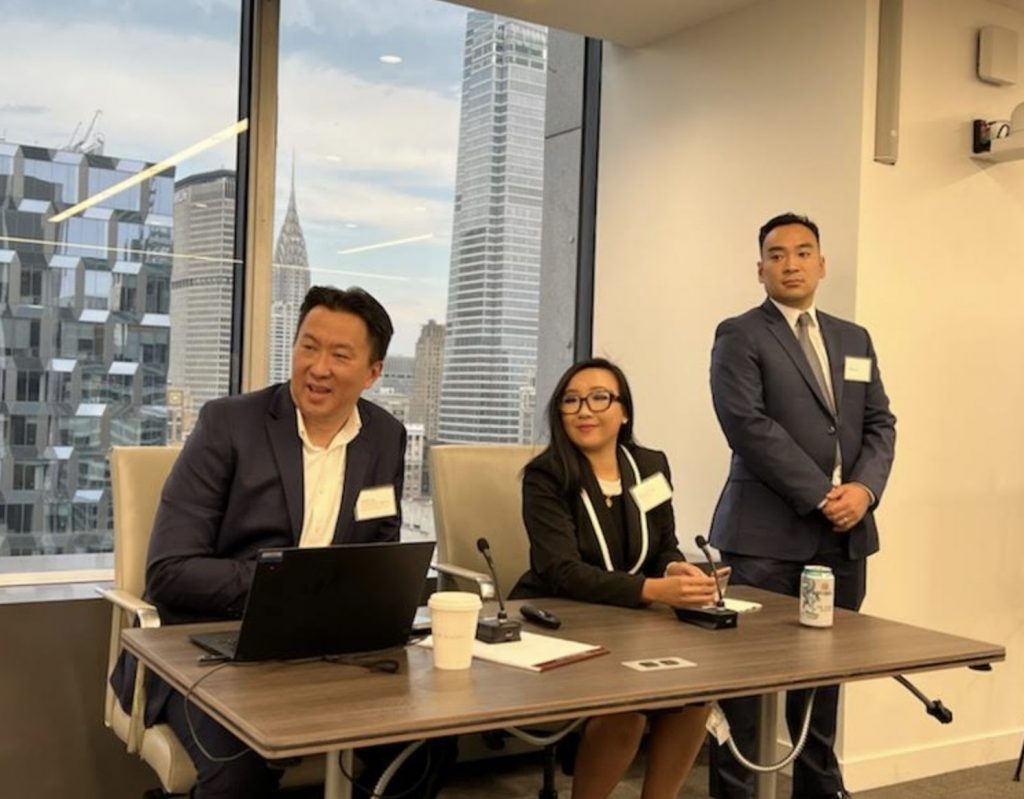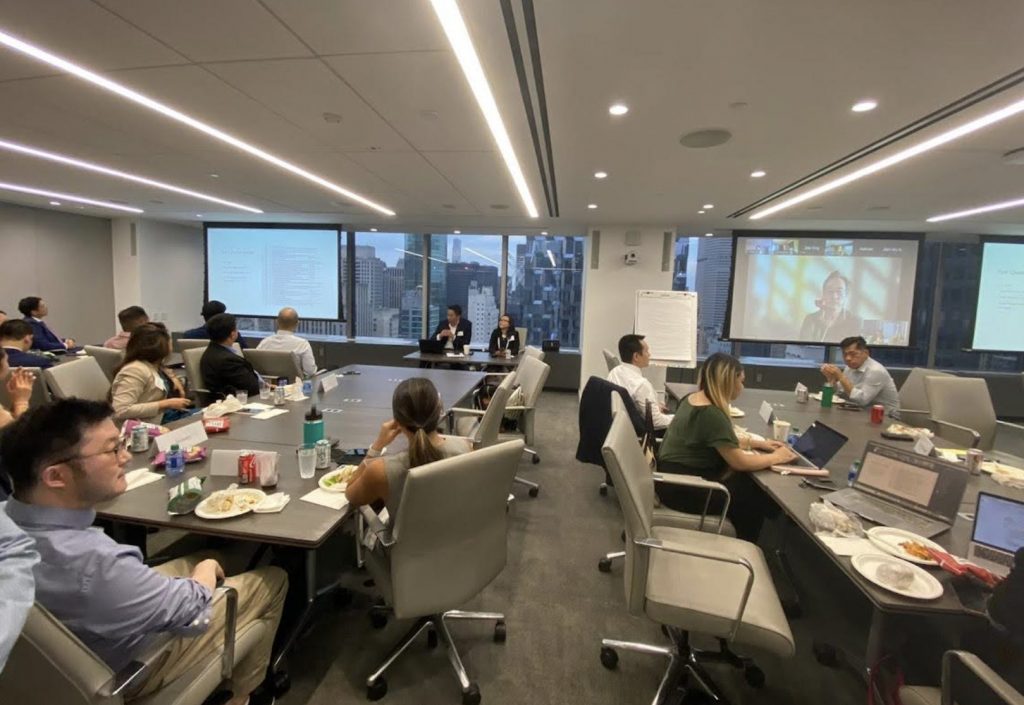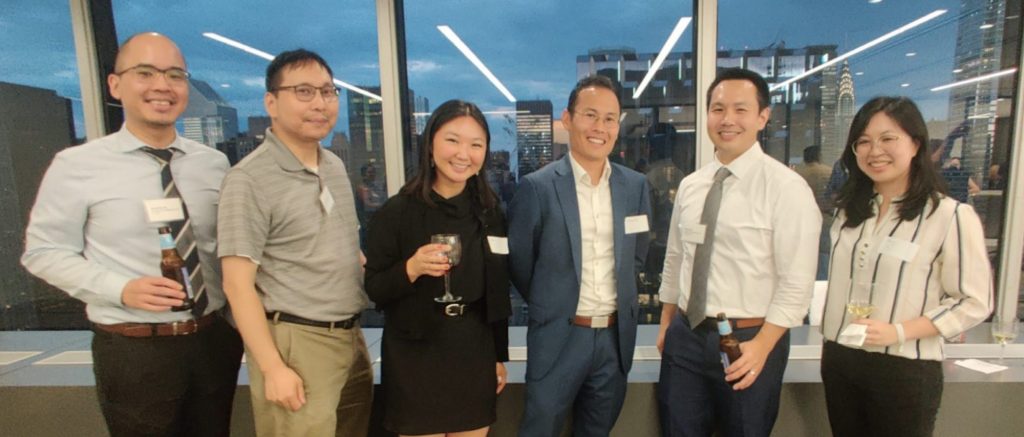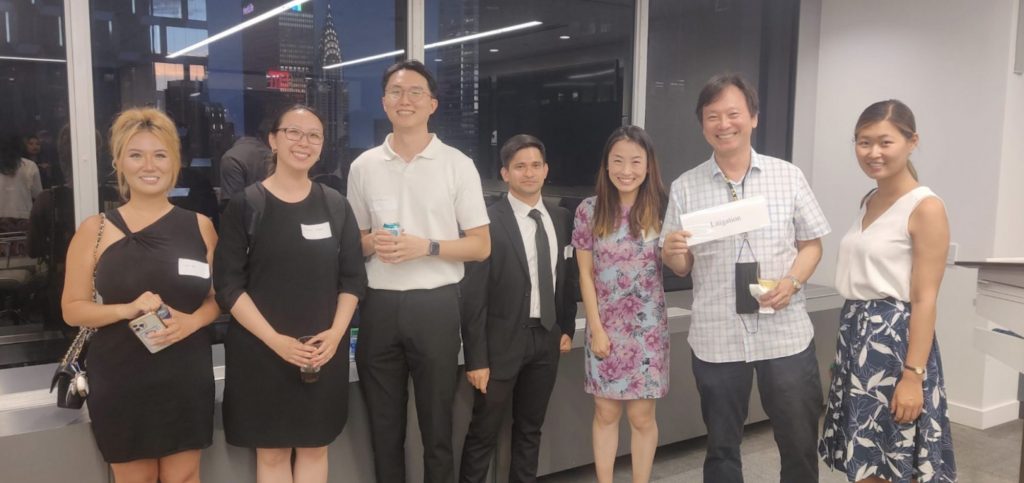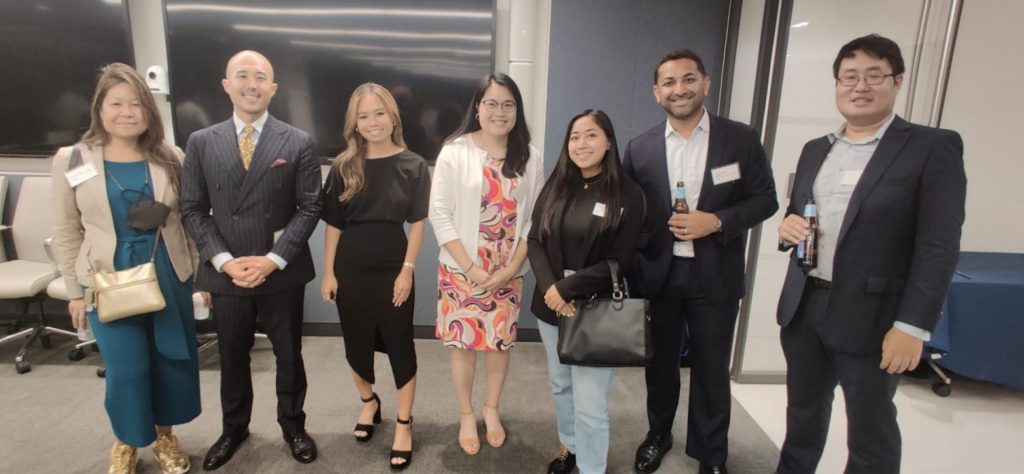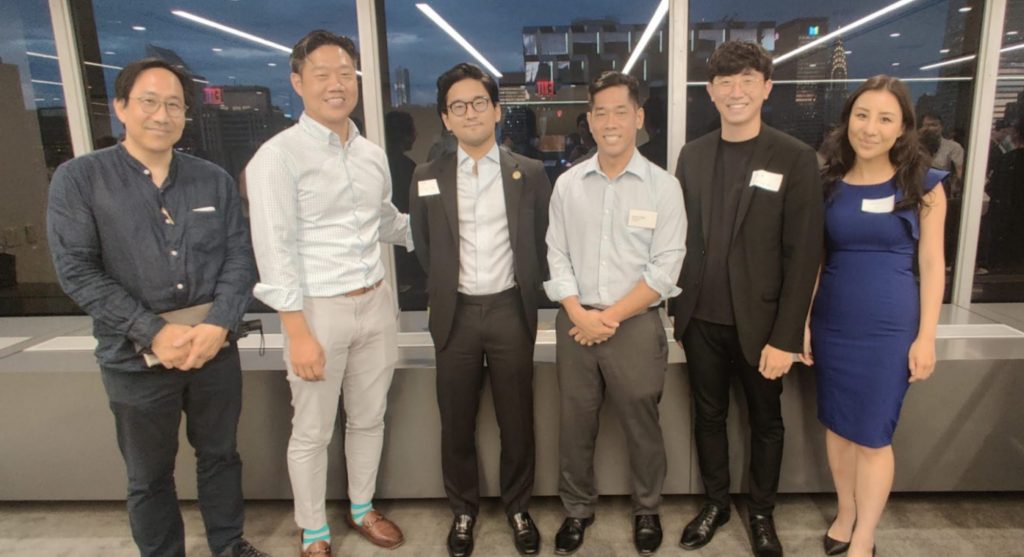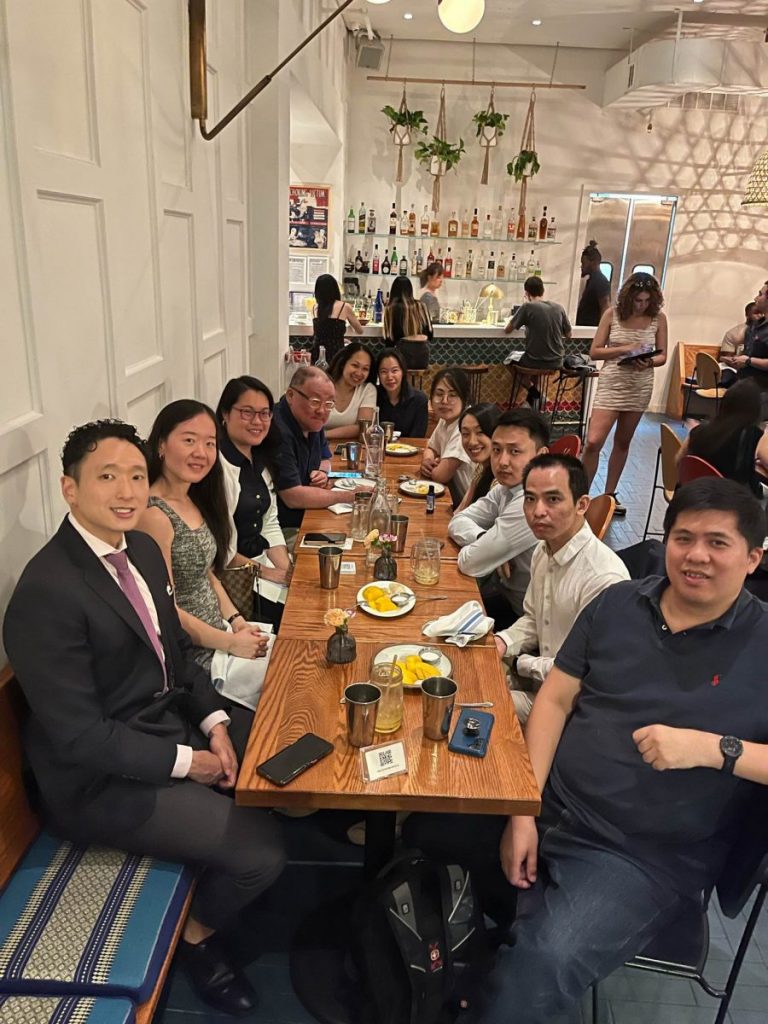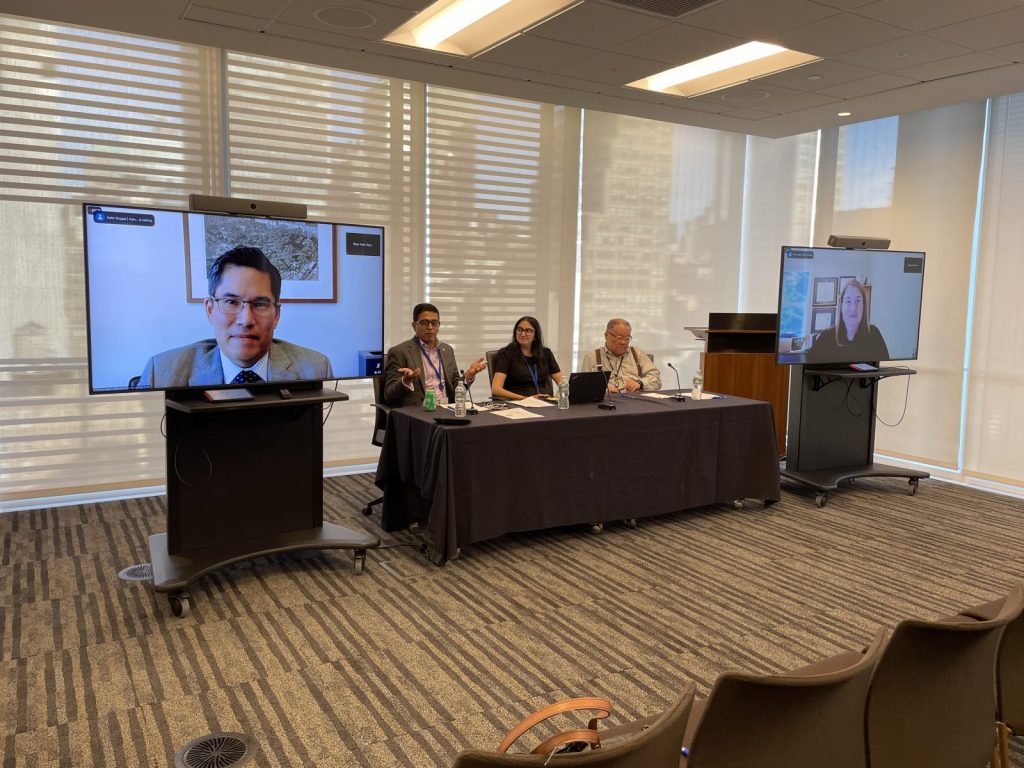The AABANY IP Committee gathered once again for a night of authentic Cantonese Chinese soul food at Dim Sum Palace on Wednesday, September 14. We started off with the traditional and all-favorite Peking Duck, which was served in small pieces wrapped in pillow-soft buns with cucumber and scallion, moved on to Deep-Fried Shrimp and Scallop, Beef Chow Fun and Shanghai Fried Rice, among other dishes, and finished off with the perfect dessert: Sweet Egg Yolk Creamy Bun.
With the seemingly endless stream of soul food spinning around on the Lazy Susans, the IP Committee welcomed a wide range of folks in the legal community: law students with a background in the medical and pharmaceutical industries, law firm associates with an expertise in IP litigation and in-house counsel practicing entertainment and media law, to name a few. As always, long-time members and familiar faces of the IP Committee gave a warm welcome to first-time attendees to discuss career trajectories, different environments of law firms and in-house roles and more. This event was the first dinner held since late July, and it was certainly worth the wait!
The AABANY IP Committee always welcomes first-time attendees and familiar faces alike. If you are interested in joining us for our next event, whether it be a movie showing, musical performance or dinner gathering, please join the IP Committee’s mailing list by contacting [email protected], and also keep an eye out for IP Committee events on AABANY’s Calendar page. To learn more about the AABANY IP Committee, take a couple minutes to look over our committee’s subpage on AABANY’s website.


